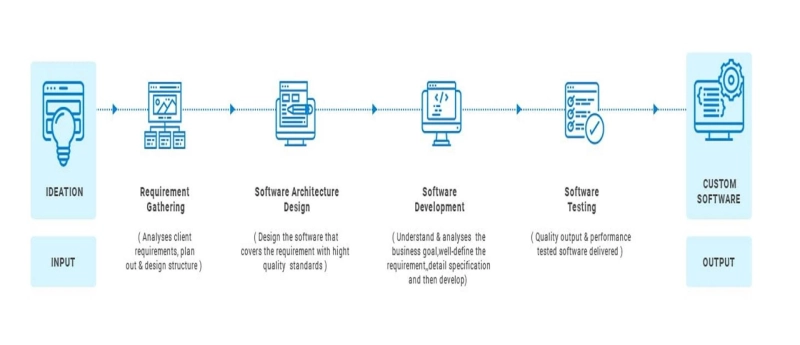In today\'s fast-paced healthcare environment, the adoption of innovative technologies is vital for improving patient care, enhancing operational efficiency, and staying competitive. Healthcare software development has emerged as a transformative force, enabling healthcare organizations to meet the challenges of the digital age. In this article, we explore the significance of healthcare software development and its role in revolutionizing the healthcare industry.
Understanding Healthcare Software Development
Healthcare software development refers to the design, creation, and maintenance of software applications and systems specifically tailored for use in the healthcare sector. These software solutions are designed to streamline processes, improve patient care, and facilitate data-driven decision-making. They encompass a wide range of applications, from electronic health records (EHR) systems to telemedicine platforms and data analytics tools.
Importance of Healthcare Software Development
The importance of healthcare software development cannot be overstated, and here are some reasons why:
Enhanced Patient Care: Healthcare software applications enable healthcare providers to access patient information quickly, make accurate diagnoses, and deliver timely treatment. EHR systems, for instance, centralize patient data, reducing the risk of errors and improving care coordination.
Efficiency and Cost Reduction: Automation of administrative tasks through software solutions leads to significant cost savings and operational efficiency. Tasks like appointment scheduling, billing, and claims processing can be streamlined, reducing paperwork and administrative overhead.
Data Security: In an era of increased data breaches, healthcare software development places a strong emphasis on data security. Developers implement robust security measures to protect patient data, ensuring compliance with healthcare data privacy regulations.
Telemedicine and Remote Monitoring: Telehealth and remote monitoring solutions, developed through healthcare software development, have become invaluable in providing care to patients in remote or underserved areas. These technologies enable real-time consultations and continuous monitoring, improving access to care.
Research and Analytics: Advanced software applications facilitate medical research and data analytics. Researchers can analyze large datasets to identify trends, discover new treatments, and enhance public health initiatives.
The Role of Healthcare Software Development
Healthcare software development plays a pivotal role in driving innovation and transformation in the healthcare industry:
Custom Solutions: Developers create custom software solutions tailored to the unique needs of healthcare organizations. These solutions can range from EHR systems that integrate seamlessly with existing workflows to specialized apps for remote patient monitoring.
Interoperability: Ensuring that different healthcare systems can communicate and share data is a key challenge. Healthcare software developers work to improve interoperability, enabling healthcare providers to access critical patient information from various sources securely.
User Experience: User-friendly interfaces are essential in healthcare software. Developers focus on creating intuitive designs that make it easy for healthcare professionals to navigate and use these applications effectively.
Continuous Improvement: Healthcare software development is an ongoing process. Developers regularly update and enhance software to adapt to changing regulations, emerging technologies, and evolving healthcare needs.
Regulatory Compliance: Developers are well-versed in healthcare regulations, such as the Health Insurance Portability and Accountability Act (HIPAA) in the United States. They ensure that software solutions are compliant with these regulations to protect patient privacy and data security.
Conclusion
Healthcare software development is a driving force behind the transformation of healthcare, making it more patient-centric, efficient, and technologically advanced. From electronic health records to telemedicine platforms and data analytics tools, software solutions are shaping the future of healthcare delivery.
As the healthcare industry continues to evolve, healthcare software development will remain a critical component in meeting the demands of a rapidly changing landscape. Embracing these technological innovations will not only improve patient outcomes but also drive efficiency and cost-effectiveness, ultimately benefiting healthcare providers and patients alike.


